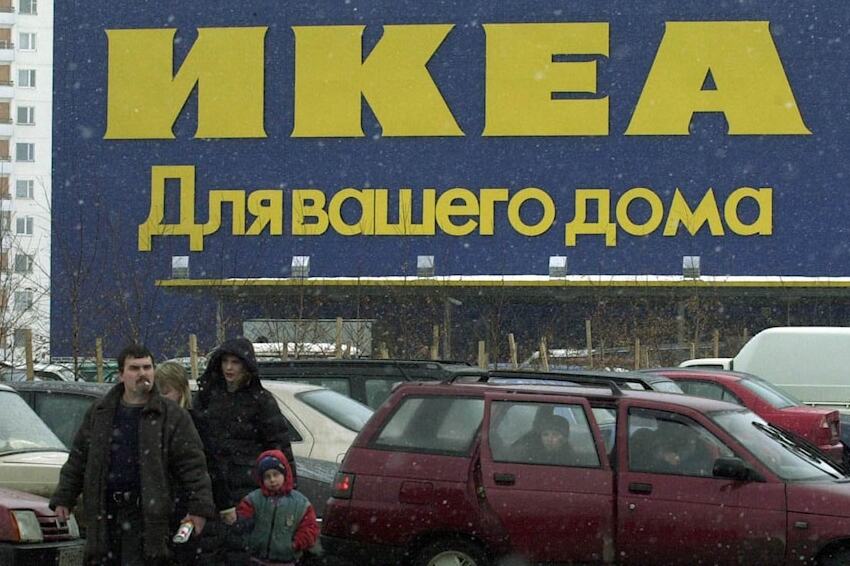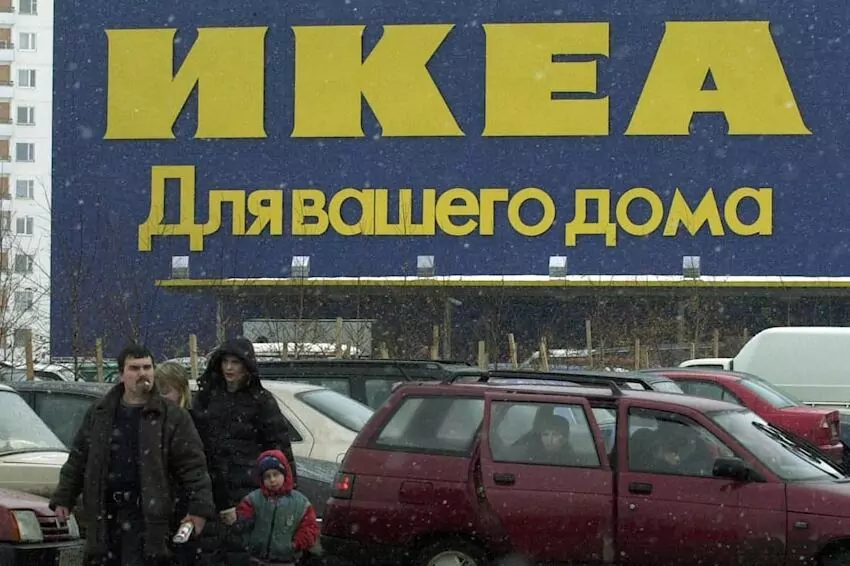

(c) Sveriges Radio
Coca-Cola trucks cross the border into Russia, holidaymakers return home with the latest Zara designs, and local internet marketplaces snap up IKEA’s furniture stockpiles. Although Western brands have departed the nation, their products remain.
Despite European, North American, and Japanese corporations leaving Russia as a result of its actions in Ukraine, the impact on Russian consumers is limited, despite longer delivery times and higher prices for some commodities.
The supply lines have changed, but the products are still available online and in stores. Buyers need just know where to search.
Importantly, the great majority of products involved are not subject to sanctions, and these transnational flows are legal and Moscow welcomes them regardless of the route they travel.
Once Moscow sent soldiers into Ukraine, the owner of Zara, Inditex, closed its 502 Russian stores and sold them to the United Arab Emirates-based Daher Group.
Today, small-scale imports and online sellers are keeping them alive, according to a Reuters analysis of six major online marketplaces and interviews with twelve customers and dealers.
Albina, 32, brought an empty suitcase to Minsk last summer and returned 24 hours later with 33,000 roubles ($442) worth of clothing for herself and her friends from the Inditex brands Zara, Bershka, and Massimo Dutti.
Inditex has not pulled out of Belarus, a firm Moscow ally, as have the majority of Western companies that have ceased operations in Russia. The corporation did not respond to this inquiry.
Albina told Reuters that she has also purchased clothing in Paris and Dubai and through an online seller network.
The year prior’s high rouble and weak Turkish lira played into the hands of Russian consumers.
Dinara Ismailova, marketing director of CDEK Forward, told Reuters that currency fluctuations contributed to a sevenfold surge in shipments from Turkey. CDEK Forward is a shipping service for international e-commerce sites.
“As soon as brands announced they were leaving, a panic ensued, and the number of volumes and orders increased dramatically,” Ismailova explained.
Last year, CDEK Forward’s revenue doubled in terms of money, with 80 percent of that coming from clothing, while its revenue from goods tripled.
As supply chains broke down, Russia approved so-called parallel imports, allowing shops to bring in foreign goods without the approval of the trademark owner.
Imported items are widely available on e-commerce websites, and vendors frequently promote that they import things from abroad.
Wildberries, the market leader, sells leftover stock from Inditex brands and has around 17,000 Zara items in its portfolio. According to a source close to Inditex, these were clearance stockpiles in Russia when the company halted operations there.
The company Wildberries did not reply to a request for comment.
Coca-Cola is a common Western product sold by Wildberries, Ozon, and Yandex Market, which is frequently represented as imported to assure customers that it is authentic.
While Coca-Cola stopped making and marketing beverages in Russia last year, others have been importing them from Europe, Kazakhstan, Uzbekistan, and China, as evidenced by labels on cans and bottles.
Some brands must fight for years against counterfeits and unlawful imports. In the interim, Coca-Russian Cola’s competitors have increased bottling capacity and introduced new cola products.
When IKEA departed Russia, it sold its shares to Yandex Market, the e-commerce division of IT giant Yandex. Inter IKEA Group, the owner of the IKEA brand, announced that it sold remaining inventory to Yandex for an undisclosed price as it downsized IKEA Retail Russia.
According to Yandex Market, it connects vendors who previously sold goods through IKEA shops with clients directly.
Former suppliers are also willing to offer IKEA products with minor modifications under various brands. One advertises a bedding set labeled “ARUA (similar to IKEA BERGPALM).”
IKEA stated it was investigating online advertisements for similar products.
Even if new prospects are presenting themselves to Russian companies, their dependence on Western brands may impede efforts to increase local production.
Read More:- Economics Minister Rafizi Ramli says Malaysia welcomes energy commerce and investment
If you happen to breathe K-drama, then your 'May 2025' will most likely be well-rendered into a month! Romantic sagas,…
Since yesterday, May 2, 2023, at the Mall of Asia Arena in Pasay, Ahtisa Manalo has demonstrated her brilliance by…
“you’re nothing but a trying hard copycat” Character- Lavinia Arguelles Film- Bituing Walang Ningning (1985) Context- Lavinia confronts her rival…
During the first months of 2025 WWE released several prominent wrestlers who were part of their talent roster. Professional wrestling…
Seventeen year old sprint prodigy Rin Kubo continues to make athletic history in Japan. At the Shizuoka International Athletics Meet,…
NextRise 2025-the biggest startup and tech event in Asia-is ready to take place in Seoul on June 26-27 at COEX,…
This website uses cookies.
Read More